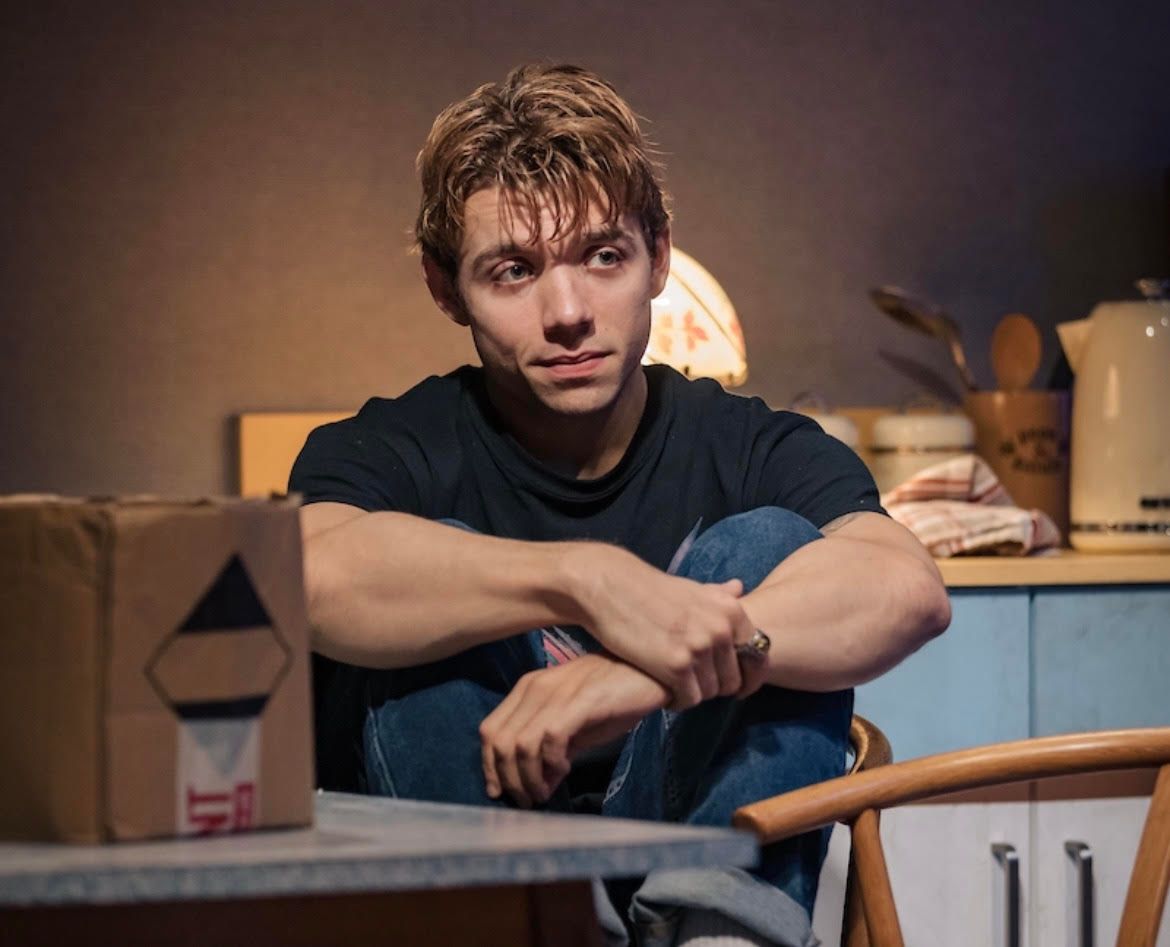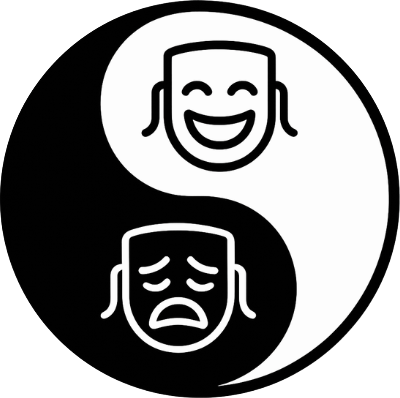Behind the Breakout: Sam Baker-Jones
Here's a fun fact: Sam Baker-Jones was one of the first actors to hit up the Dojo when we started running coaching sessions back in 2020. Not that we can lay any claim to his abundant brilliance. That be all him.
Those who watched the 2020 series Noughts + Crosses will be familiar with Sam's face. Ditto those who caught last year's DI Ray (which he's soon returning to for Season 2). London-based Dojo friends may have also spied him on stage in Here – where he was singled out by The Guardian and The Evening Standard – and earnt himself an Offies nomination for Best Newcomer.
Here we talk to Sam about the intangible pull of acting, achieving "success" quickly, and good ol' therapy.

Can you describe to us the moment you decided to become an actor?
Sam Baker-Jones: I was not a theatre kid. We had to do drama until high school, and I didn't get on with school very well, so it was just a way to have a laugh. When you had to pick what [classes] you wanted to do, I did pick it, but then it was all a bit serious. I tried to leave and do geography or something instead, but I had one good lesson, and my teacher was like, "You should think about staying on". I hadn't been told that about anything else. I got alright grades, but this was the first time I'd been told, "You should pursue this".
When I went to college, I dropped it. It wasn't cool, right? I didn't know anyone else from around me that did this. But when I was on work experience during college in a warehouse, I was like, "What do I actually want to do?" I went back to my drama teacher and was like, "I think I want to be an actor". She was like, "No, you definitely don't". But she pointed me in the direction of this school in Birmingham in an old fire station.
There were no real classes, we just did shows on shows on shows. I did 22 shows in two years. In my second year there I started to understand what it might be. I was there from 10 am to 10 pm, five days a week. I think that's the hardest I've ever worked at anything. I just really went for it.
What was it about acting that kept pulling you back?
SBJ: I don't know. There's a romantic way of looking at it, and going, "There's a sense of purpose". Maybe if you're meant to be on a path you find your way back to it?
My relationship to acting is quite funny. Still now, when I have those moments of, "I can't do it", there's a reason to go back and carry on for a little bit longer.
You graduated from London's Rose Bruford College in 2018. How was your experience of drama school?
SBJ: To have a space where you can go and do the things we did, day in and day out, is pretty amazing. You've got to be grateful for that space.
At the time, I think everything felt really important, and I wish I'd known that you could enjoy it a little bit. It's an odd experience. There's such a select group of people that end up doing this drama school thing, and it's so hard. So I look back, and it's everything – it was great, it was terrible, and it was sometimes just okay.
It's a funny age to be there as well. You're still figuring everything out, moving away... I think it's an experience. I think it's a million different things.
You signed with a top agent and booked some big gigs soon after graduating. Did achieving "success" so quickly present any challenges?
SBJ: I think so. Whether or not I knew that they were challenges at the time.
A lot of actors say, "You can't really learn how to do it until you do it". The acting stuff is one thing, but how to act on set is such a different thing. When I went into my first job, I was a very small cog in a big machine. I didn't know what that meant. No one tells you that. And I think [having just] graduated, I put pressure on myself to know what I was doing, and that resulted in me doing the wrong thing pretty consistently.
Also, if I'm being completely honest, I got very much ahead of myself. I got that job and was like, "I'm smashing it". Everyone who goes to drama school – I don't care who you are – 99.9% have a vision that they're going to leave, they're going to start working, and they're going to become an incredibly famous and successful actor. And you kind of have to think like that. But I think that when you first leave, it's good to not work for a little bit. I think everyone should go for a time of not working and having to work another job and re-acclimatise to life outside of drama school. I think that time is really useful, and I didn't get it really. There are worse problems to be having, but it's all contextual, right? I think I felt like any struggles I was having were kind of invalid because I was working.
Has your definition of success evolved since those first jobs?
SBJ: Definitely. What I would have considered "successful" was incredibly superficial. And maybe this is worth talking about – this atmosphere of needing to be seen. I think when you leave [drama school], this atmosphere is cultivated that isn't a good one, of people wanting to be seen doing cool sh*t. I certainly wanted everyone to know I was doing this production with these people. If I'm being really honest, when I got that job, my first thought was, "Thank God. I've got a job". Which is f*cked up, really.
That has massively changed for me over time. I now think success is making enough money to live on and doing work you care about and enjoy. Some of the actors whose careers I admire the most now don't have a lot of those things that I would have idealised [previously]. And a lot of people I speak to who have those things – it's not necessarily what it appears to be.
#truth. Do you have any hobbies or practises that help keep balance and perspective?
SBJ: I lost my way a bit as an actor before COVID, and there have been loads of things that have contributed to me sitting in the seat I sit now – one with a lot more self-worth and understanding. Meditation and mindfulness changed a lot for me in coming back to the person I think I am or want to be. Reading, running, and yoga all seem to really help centre me too.
Moving back to the place I grew up in was massive. London is such an actor-centric place, but while I was living there, I felt like I was playing the part of an actor or something. When I moved home, I realised, "Oh, I can just be me". And actually, that feeds into the work a lot more.
The teaching [I do] has been essential. I don't know if I'd be acting anymore if I didn't do that. I'm so grateful for the school and the kids at the school, because I've really learned from them. Only through doing that did I start working again. That's why I'm still acting.
I'll also say getting therapy has taken it to another level – me finding that work/life balance, self-worth outside of acting, and also confidence in my acting. I know I'm very fortunate to be able to afford it, but it can be f*cking massive. Your work is good if you're secure.
Big love to Sam for his time. You can follow Sam's journey over on Instagram and Twitter. Wave hello and let him know you're from the Dojo 👋
Thoughts / feedback / challenges for us? We'd genuinely love to hear.
